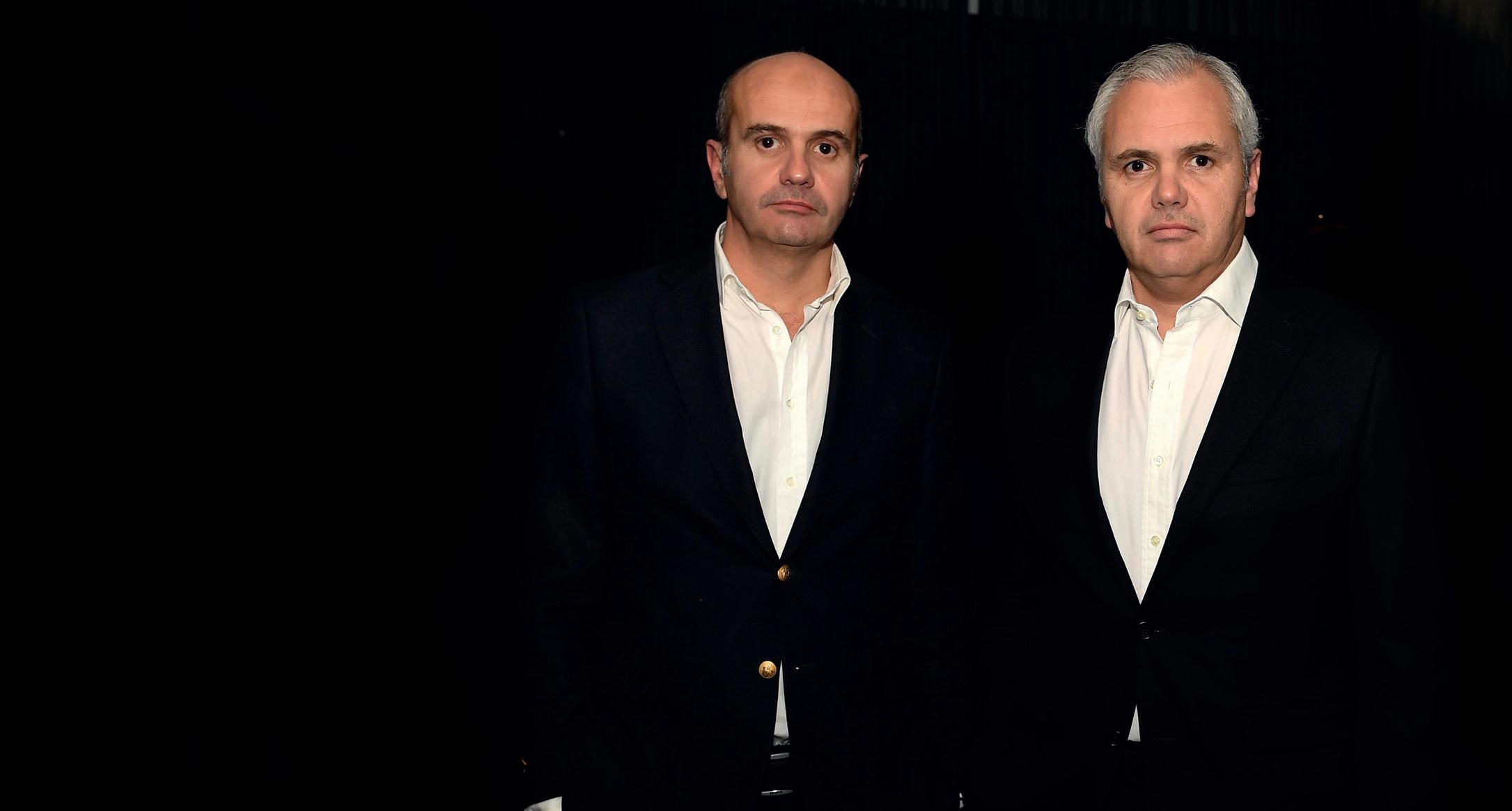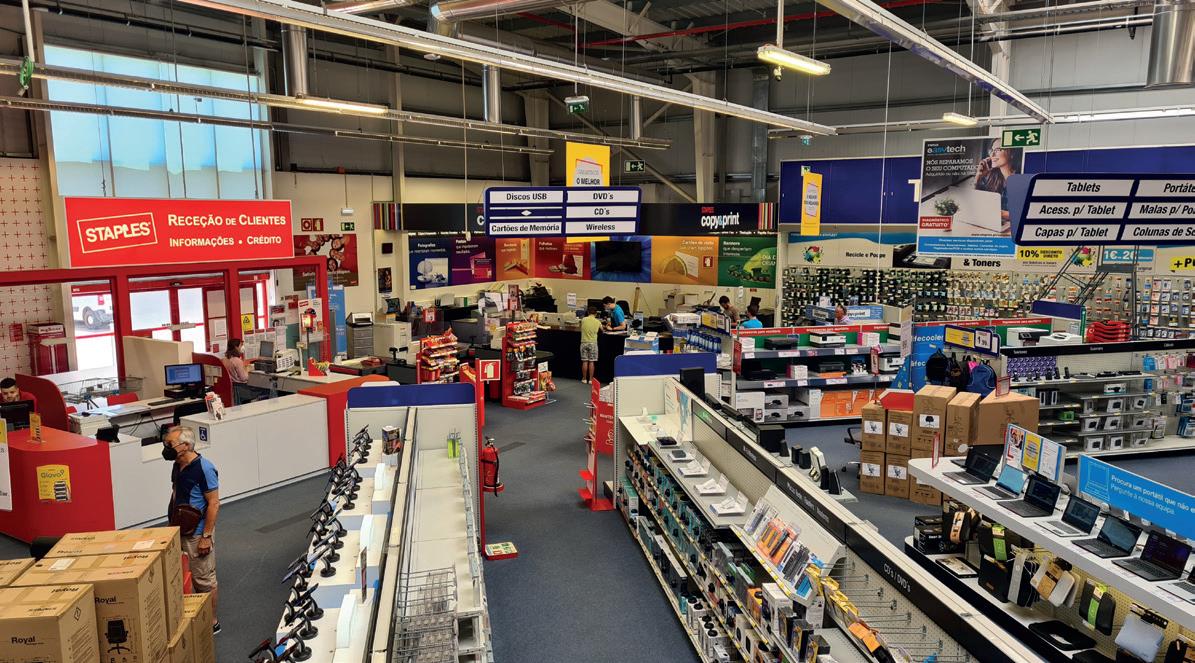
6 minute read
Spotlight
from OPI APP JUNE 2022 A
by OPI
A GOOD fit
OPI’s Spotlight heads to Portugal, a year after stationery company Firmo acquired the local Staples operations – by Andy Braithwaite
Just over 12 months ago, Firmo was a relatively unknown name in the European and international business products world. That all changed in May 2021 when the Portugal-based group closed the acquisition of the country’s retail-orientated Staples business.
Overnight, Firmo was transformed from a €20 million ($25 million) manufacturing and distribution company with around 150 employees into an omnichannel entity with annual revenue of about €110 million and more than 750 staff members.
The history of Firmo dates back to 1951 when it was founded by three brothers, one of whom was the grandfather of Rui and Miguel Carvalho, the respective President and VP of the group today.
By the 1990s, the company – under the leadership of Rui and Miguel’s father – consisted of three main divisions: the manufacturing and converting of paper and stationery products; a wholesaling and distribution arm; and a merchanting business for the graphic paper industry. It had also opened two cash-and-carry stores, one in its home city of Porto and the other in the country’s capital Lisbon.
CHANGE OF OWNERSHIP
The operator was doing so well that it attracted interest from abroad. In 1998, it was acquired by manufacturing and distribution giant Arjo Wiggins Appleton, with Firmo being rebranded to Antalis in the early 2000s.
The sale signalled the exit of the Carvalho family. Rui and Miguel pursued careers outside the industry, the former in telecoms and his younger brother in finance. In 2011, with Antalis looking to offload non-core assets, they saw an opportunity to reclaim the family business, buying back the manufacturing and wholesaling activities and re-establishing the Firmo name.
Fast-forward almost ten more years, and another opportunity presented itself. This time, it was in the retail channel as Staples Solutions looked to divest the various components of its
Rui (l) & Miguel Carvalho business throughout Europe. One of the last pieces of the puzzle was in Portugal, where the 34-store retail chain – which began life in 1996 – was clearly not a B2B business that would interest the likes of Bruneau, Lyreco or RAJA.
However, retail was not a core competency at Firmo either. Nevertheless, Rui Carvalho believes the acquisition – for which the financial details were not published – made good sense strategically.
“There is a strong, positive awareness of the Staples name in Portugal,” he says, adding that Firmo has a perpetual licence for the brand in the country. “The acquisition was very good news for our own production – both for supplying private label and our branded products – meaning there are industrial and commercial synergies for us.”
The purchase also led to opportunities in the B2B space. In 2016, Firmo had set up its own direct operations, selling envelopes and other stationery products to corporations and public sector clients. Around 10% of Staples Portugal’s revenue came from B2B, and these activities have now been merged into one unit, called Staples Corporate.
“This is an area of the business we are really looking to develop,” states Carvalho. “It was a segment facing many challenges during the

pandemic, but the situation is now improving and our revenues in the first part of 2022 are up 30% on last year.”
He continues: “The government recently stopped making masks mandatory in offices and schools, and this has been a boost for us. The B2B sector in Portugal is still highly fragmented, so we believe we will be able to take share on the back of the Staples brand reputation and our levels of service. With this in mind, we are currently expanding our sales team.”
In terms of the Staples management, there has been little change since the Firmo takeover. Long-time company exec – and Managing Director since 2014 – João Peixoto is still in charge and responsible for the day-to-day activities and strategic direction of the business. The Carvalho brothers are non-executive directors on the board.
“We are very pleased with the team we have inherited at Staples,” notes Rui Carvalho. “We, of course, performed due diligence on the business and I’m happy to say we have not found any ‘skeletons in the cupboard’. One thing you don’t see in the financials is the quality of the people and the team spirit – I must say that has been a nice surprise. They are competent, dedicated and want to ‘wear the shirt’. So why change something that is working?”
NEW INVESTOR
Funding for the Staples transaction led to a change in the ownership structure of Firmo. The Carvalho family still holds the majority of equity, but private equity firm ActiveCap is now also on board as a minority partner.
“I have known [ActiveCap founder] Pedro da Silva for several years and we have a very good relationship,” says Carvalho. “He and his team have been actively helping us for the past year. They are hands on, but everything is very open and it would be difficult to imagine a better partner.”
Retail, in general, has been tough over the past couple of years, but the stores in Portugal have actually been performing well. Not having to close them during the pandemic was certainly a factor, as was the high demand for items in the technology and furniture categories.
In 2021, Staples ran a very successful back-to-school (BTS) campaign centred around the theme of bullying in schools. It was something that gained a lot of traction with the local press and the company is preparing another big marketing push for the 2022 season. As for all office supplies retailers, BTS is a key time for Staples Portugal, and also for Firmo, the season accounting for approximately 30-35% of annual sales. “It’s our Christmas,” states Carvalho.
The Firmo President is not expecting the 2022 BTS period to be radically different from 2021, despite the current inflationary environment which is hitting consumers’ spending power. The average BTS basket in Portugal is €50-€60 and is predicted to be stable this year.
“In terms of the overall family budget, it is not a huge amount,” he notes. “Parents like to treat their children well, even if other things are increasing. There may be some trading down, but we are not forecasting much of a change.”
One concern Carvalho does have at the moment is the price and availability of paper, a key product for the group across all its divisions.
“I have been in the paper business for 24 years and have seen many pricing cycles, but the current situation is unprecedented,” he comments. “In general, the market is accepting the increases; buyers see what is going on. What they really need is availability; our orders [in the Firmo manufacturing unit] are higher than ever, but we have a large backlog.”
Carvalho says he was saddened to learn about the failure of Office Centre in the Netherlands and Germany – retail cousins that were also part of the Staples Solutions divestment programme. But the Portuguese market is different, he asserts.
“We know retail is facing a lot of challenges, but like-for-like sales are growing. Online sales, while increasing, are relatively low here and consumers are still attached to the physical aspect of visiting stores. At the same time, we are investing in an omnichannel future, with a new website, services such as click-and-collect and our B2B business.”
Another area Staples is looking at is the expansion of the retail network via smaller-format, local stores in high-traffic areas. A pilot is being conducted at the Faculty of Science at Lisbon University. If successful, the plan is to develop this concept at other higher education and business locations.
The Carvalho brothers have a busy agenda for the rest of 2022. Work on group integration is going well, but is expected to take another 12 months to complete. They are also putting together a longer-term strategic plan. This includes the international development of MakeNotes, the trendy, eco-friendly stationery brand acquired by Firmo in 2019 – another part of its diversified model.










